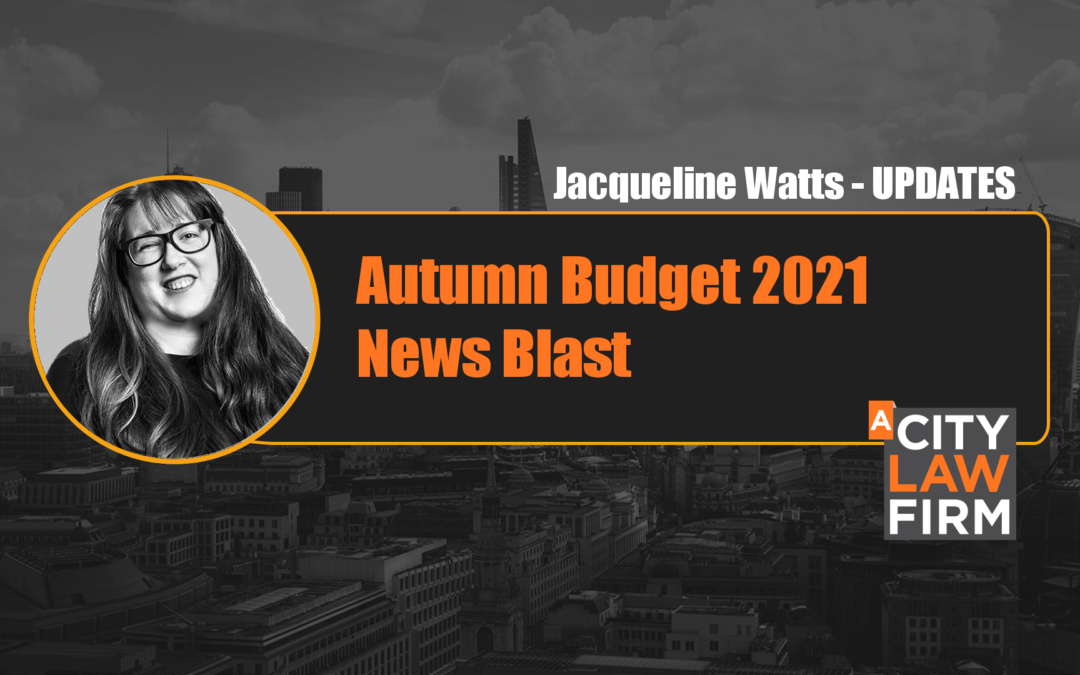Rishi Sunak, the chancellor of the Exchequer delivered his Autumn Budget yesterday. The Chancellor gave stark acknowledgement to the economic troubles that the last 18 months have brought about, and he predicted that whilst there will be hard months to come, our economic recovery will be faster than expected.
As we know, tax increases have already been announced this year for businesses, with corporation tax rising to 25% and the Health and Social Care Levy coming into force from April 2022, which taxes employees, employers and the self-employed alike. Due to this, the government were able to announce impressive increases in spending, without introducing any noteworthy new tax rises. This is perhaps a smoke and mirror exercise, but the increase of £150bn in spending over the next 3 years is welcome, nonetheless.
For businesses and the economy, a few exciting reforms in property development, shipping and creative industries were announced. At an individual level, there were positive announcements to Universal Credit and the National Living Wage.
We were expecting some announcements and perhaps higher taxes being introduced in regard to pensions, capital gains and inheritance tax, however the government saw fit to leave these alone, for now. Although, reforms to these areas are still expected in the near future.
Key Announcements:
- Wages have grown, in real terms, by 3.4%, with employers feeling more comfortable to increase their staff’s pay;
- Unemployment will likely peak at 5.2%, which is significantly lower that the 11.9% previously expected.
- Inflation is likely to rise to an average of 4% in the near future. It is currently at 3.1%.
- Borrowing, as a percentage of GDP will decrease to 3.3% next year.
- The UK’s economy will return to pre-pandemic levels by 2022.
Tax
- The Universal Credit taper rate is to be cut by 8%, allowing claimants to keep more of their payments.
- Business Rates will shortly be reformed, and a 50% business rate discount has been announced for leisure, retail and hospitality sectors (up to a max of £110,000).
- National living wage will increase to £9.50 an hour.
- A tax relief for galleries and museums has been extended until 2024.
- The pre-planned fuel duty rise has been scrapped.
Education
- £300m is to be spent on a ‘Start for Life’ parenting programme, which will help with childcare, amongst other things.
- Schools will receive an extra £2bn to help them recover from the pandemic and by 2025, schools will receive an extra £4.7bn on top of existing funding.
Alcohol
- A lower duty on draught beer and cider will be introduced for containers of over 40 litres. (5% cut to current duty)
- Rates on low alcohol drinks will reduce, whereas stronger alcoholic drinks will see a small increase.
- The confusing and complex alcohol duties system will be reformed.
- The pre-planned rise in duty for many alcohols has been scrapped.
Housing
- A 4% levy will be introduced on high revenue property developers, to help pay for the removal of unsafe cladding.
- Brownfield sites have been targeted to build new homes, with £11.5bn to be put towards affordable housing.

